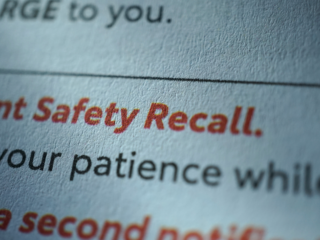Released July 29, 2015 | CanLII
The Plaintiff commenced an action against the Defendants after sustaining injuries in a motor vehicle accident. State Farm Mutual Insurance Company (“State Farm”) denied coverage to the Defendants and had itself added as a statutory third party in the action, but refused to provide detailed information as to why it denied coverage. The Plaintiff sought an order requiring State Farm to answer questions refused, which were asked by written interrogatory, and an order requiring State Farm to deliver a sworn Affidavit of Documents.
State Farm stated that it denied coverage as a result of a material misrepresentation by the owner of the vehicle and the lack of cooperation by both the owner and operator of the vehicle. State Farm argued that the issue of coverage as between it and its insureds is not relevant to the Plaintiff’s action. Price J. noted that the Plaintiff has pleaded that he is entitled to underinsurance coverage from Intact Insurance Company (“Intact”). Price J. further noted that the Plaintiff can access his underinsurance coverage only if it is determined that State Farm was legally justified in denying coverage to its insureds. As a result, State Farm’s refusal to answer the questions it was asked in this regard prevents the Court from making this determination and may affect the Plaintiff’s ability to be fully compensated for his losses. Citing the Court of Appeal in Maccaroni v. Kelly, Price J. concluded that the effect of section 258(11) is to reduce the limits of the policy to the statutory minimum “where it is determined” that there has been a breach of a policy condition by operation of the law, and until there is a finding to that effect, the insurer’s allegation of a policy breach is only an unproven allegation.
State Farm also argued that it must act in the insureds’ best interests and that the issue of coverage must be dealt with after the trial of the Defendants’ liability. Price J. noted the potential application of Rule 31.06(6) where the disclosure of certain information may be prejudicial. However, in order to determine whether a Court should grant leave to State Farm to withhold the relevant information sought pursuant to Rule 31.06(6), the Court must see the evidence. Price J. held that that where an insurance company is a party to the litigation, it will be required to provide documentary discovery to the same extent as another party. Where coverage has been denied, the Court should determine, upon a motion made by the insurer under rule 31.06(6), whether the insurer must disclose the information and documents relating to its decision on a case by case basis, having regard to whether the documents are relevant, whether their disclosure at this time would cause prejudice, whether they are protected by litigation privilege and whether that privilege, if it exists, has been waived. A hypothetical prejudice to State Farm’s insureds does not justify a wholesale refusal by State Farm to answer the questions put to it.
Price J. ordered State Farm to answer the Plaintiff’s questions (subject to any issues/objections to be submitted to his Honour in sealed form) and that State Farm is required to deliver a sworn Affidavit of Documents as required by Rule 30.03.













